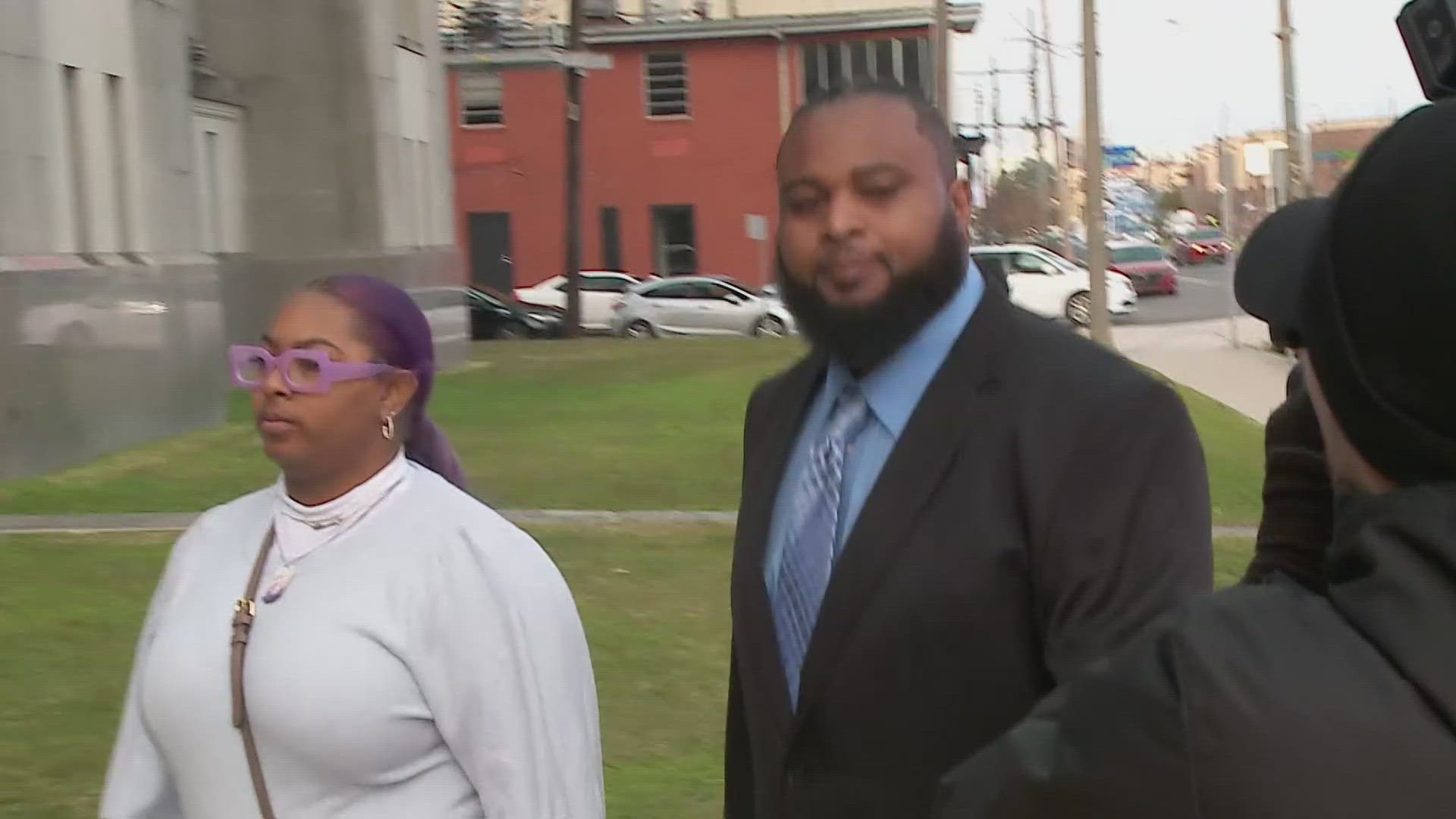NEW ORLEANS — Paul Murphy and Mike Perlstein provided the information for this report
It took attorneys more than eight hours to seat a jury of 12 and two alternates in the Cardell Hayes manslaughter case.
There will be no time limit for opening statements, which are now set to begin at around 9 a.m. Tuesday.
Monday, Cardell Hayes arrived at the Orleans Parish Courthouse for the start of his second trial in the shooting death of Saints defensive end Will Smith and the injuring of Smith’s wife nearly 8 years ago.
Smith’s widow Racquel was also in the courtroom.
Hayes’ initial conviction on manslaughter and attempted manslaughter was overturned when the U.S. Supreme Court ruled that non-unanimous verdicts are unconstitutional.
Monday, a 90-person jury pool filed into the courtroom for jury selection.
District Attorney Jason Williams is trying the case along with prosecutors Matt Derbes and Constance Tullier.
Williams started off the questioning.
He told the first panel of 22 potential jurors, “I need to know if you heard about this case on the news, how much you’ve heard about this case on the news, and if what you’ve heard makes it hard to be fair and objective.”
About half of them indicated they had heard about the case.
“One of the things that they want to get out of the way, right away, is determining who in the jury process might have made a predetermined conclusion about the case based on what’s in the media or what they read,” Legal Analyst Craig Mordock said.
Williams also read potential jurors the state’s Aggressor Doctrine which basically states, an aggressor cannot claim the right of self-defense unless he withdraws from the conflict in good faith.
Prosecutors allege Hayes shot Smith in the back and his wife in the legs after rear-ending Smith’s SUV in the Lower Garden District.
Hayes’ attorneys claim their client feared for his life and shot Smith in self-defense.
Defense Attorney John Fuller reminded the jury panel, “The state of Louisiana has the burden of proof to prove the defendant’s guilt beyond a reasonable doubt. The defendant doesn’t have to prove anything in trial.”
Fuller also read the panel the legal definition of justifiable homicide.
“You want to get the jurors right on point with where you’re going and start using the jury process,” Mordock said.
Hayes is facing one count each of manslaughter for Smith’s death and attempted manslaughter for injuring Smith's wife.
Hayes had served four years of a 25-year sentence when he was granted a new trial and released from prison in 2021 after the U.S. Supreme Court outlawed non-unanimous jury verdicts. Since the jury found Hayes guilty on lesser charges, he cannot be retried on the second-degree murder and attempted murder charges he originally faced.
As in the first trial, prosecutors and defense attorneys are expected to paint two very different versions of the facts on the night Smith was shot and killed. According to police, Hayes rear-ended Smith's Mercedes-Benz at Felicity Street and Sophie Wright Blvd., then shot him seven times in the back and once in the side. Smith's wife also suffered gunshot wounds to both of her legs.
DA Williams said, “One man rammed his car into the back of another man. He got out of the car angry with a gun, which no one should ever do and when Will Smith turned his back, he shot him in the back after shooting Will Smith’s wife.”
Hayes’s attorneys have claimed he was not the aggressor, but fired in self-defense, fearing that the angry NFL star was fetching a gun from his SUV's glove box during a heated argument following the crash.
Under Louisiana law, a homicide is justifiable when committed in self-defense by one who reasonably believes that he is in imminent danger of losing his life or receiving great bodily harm. A person must also be acting lawfully in order to claim stand-your-ground as a defense. The defense does not apply to a person who is an aggressor.
Last week, trial Judge Buras denied a request by defense attorneys, Sarah Chervinsky and John Fuller to throw out the indictment against Hayes. They accused prosecutors of not turning over evidence that could help clear their client. The defense pointed out that the recordings of four witnesses, including Smith’s wife, were either lost or stolen by the NOPD.
Judge Buras said she expects the trial to last 6-8 days.

